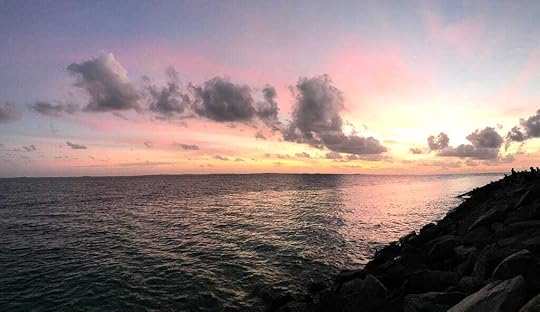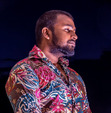When Stories Start Speaking for You
Reflecting on my creative shift of genres, from personal writing to fiction that spans history and speculative futures.
It’s been a while since I’ve published my writings. In fact, it’s been a little under 2900 Days since I wrote my first and only post on Medium. Writing has always been quite personal for me, and I often wrote to understand myself. Writing is a cathartic process, and while very few relatable thoughts end up getting published, what doesn’t make the cut often ends up being spoken through the mouths of the characters in the stories that I write.
For a long time, my creative work was rooted in reflection. I explored emotion, resilience, and the quiet ways people rebuild after loss. It was personal, intimate, but also quite freeing. But something shifted. Not suddenly, not dramatically — but like a tide that changes direction while you’re watching the horizon, in those waves that build up in groups of seven to drench us as we naïvely sit far too close to the edge.
 And it took me only a few times of getting wet to the bone to learn not to sit there.
And it took me only a few times of getting wet to the bone to learn not to sit there.If what I write about myself is relatable, then there must have been and there will be people who had and will have similar experiences elsewhere, and elsewhen.
Elsewhere is not that hard to imagine in this day and age. Just open up Google Maps and you can literally be on the street in Paris. But it’s harder to imagine elsewhen.
2900 days is a lot of time. I published and unpublished a book. A pandemic happened. The world is on the edge of impending war. I changed jobs and my friend circle shrunk a few times to less than a handful, if that’s a thing. I approached my 40th with the uneasy feeling that I have very little to show for what I’ve done all this time.
No, wait… I probably have too much. Too much unpolished stuff, but nothing that’s done to my satisfaction.
I‘ve written a lot but I stopped publishing. Not even tweets made it out. I just didn’t think my commentary on the things I found interesting — post-worthy — was worth the time it takes to craft it into a narrative that would fit an audience. Or, rather, I became a bit more cautious of what my thoughts mean and how they’re interpreted. I’ve since learned that it isn’t possible to craft something that can only be interpreted in the way I intend it to be. People experience things through the filter of the sum of the knowledge they’ve gathered through their lived experience.
Narratives shape reality… words do matter (that’s the brand of my English coaching sessions, by the way). It was Socrates who said, “The misuse of language induces evil in the soul.” In Islam, we are taught to guard the tongue lest it draws us into evil.
So I stopped writing for a while and read, studied, researched. I started from books about the process of writing and editing. Then I expanded into almost every genre of books. At some point though, I felt that I had to start from the beginning, so I went with the history that I learned in school… and then the history that I didn’t learn in school.
I read, like for a few years, from many dusty tomes, books that people have forgotten, books that were withdrawn from public circulation for political reasons, journals that didn’t have a wide circulation, rare books, and books that were banned for inciting revolutions or because they’re simply destructive.
And I made notes… a lot of notes. First of all, collecting these old books is an adventure of its own. Some of them turned up in the most unexpected places.
Being someone who’s almost always living away from home, my challenge was finding digital copies of these books. I didn’t want to have to carry around tons of books. I have always loved the convenience of digital books. And I always thought that people who insisted on paper books simply loved the books and not the reading. And annotating.
Without having written anything solid like a complete post — or an Instagram caption — I have enough notes and cross-referenced so many books that it would take a very long time to edit and draft into the skeletons of stories that I pulled out of life, out of current events, out of the vivid dreams that I have.
Narratives… shape reality. Memories can be altered. Voices can be weaponized. We’ve seen it play out over the last three years on the global stage.
How we interpret these perspectives are key to understanding why our reality is the way it is. Reality can have a completely different meaning in alternative interpretations. And there are quite a few stories that don’t have a narrative, that weren’t written, that aren’t told.
So I started listening differently. To history. To silence. To speculative questions that don’t have easy answers. And I read alternative history, of the history that wasn’t written by the victorious. The history of the silenced, of the downtrodden.
What if a culture erased by colonization found its voice in a parallel timeline? What if multi-generational sorrow could be mapped like the constellations across the heavens? After all, our constellations have ancient stories behind them, hidden behind their names.
These are the kinds of stories I’m writing now. Fiction that blends emotional truth with historical texture and speculative design. Stories that ask not just “what happened?” but “what could have happened?” and “what might still?”
That’s the strange beauty of fiction. It gives emotions a disguise, questions a voice, and memories a new perspective. Stories sometimes speak the truths we’re not ready to say aloud.
I’ve never stopped writing, but I gave it time and space to breathe and grow into stories that stretch beyond personal reflection. Stories rooted in history, in imagined futures, in the quiet revolutions that unfold across time and space, with characters who live in forgotten eras or speculative worlds, who carry emotional truths that feel deeply familiar.
Crafting stories about the systems that shape us — whether we live in a remote island in 1850 or a space colony in 2150 — led me to historical fiction and science fiction, genres that allow me to explore identity, transformation, and cultural memory on a broader canvas.
 For instance, Maldivians would have been outnumbered by coconut trees by a huge margin, unlike now.
For instance, Maldivians would have been outnumbered by coconut trees by a huge margin, unlike now.I’m not abandoning reflection. I’m expanding it. I’m not leaving behind emotional clarity — I’m simply giving it new landscapes to live in.
Some of my upcoming stories will take place in centuries past, others in futures not yet born. But all of them will carry the same thread: a search for clarity, for meaning, for the quiet truths that often go unnoticed.
So if you’ve read my past works, thank you. And if you’re just arriving, welcome. This is a new chapter — one that spans timelines, but always returns to the heart.
Let’s see where the stories take us.
[image error]


